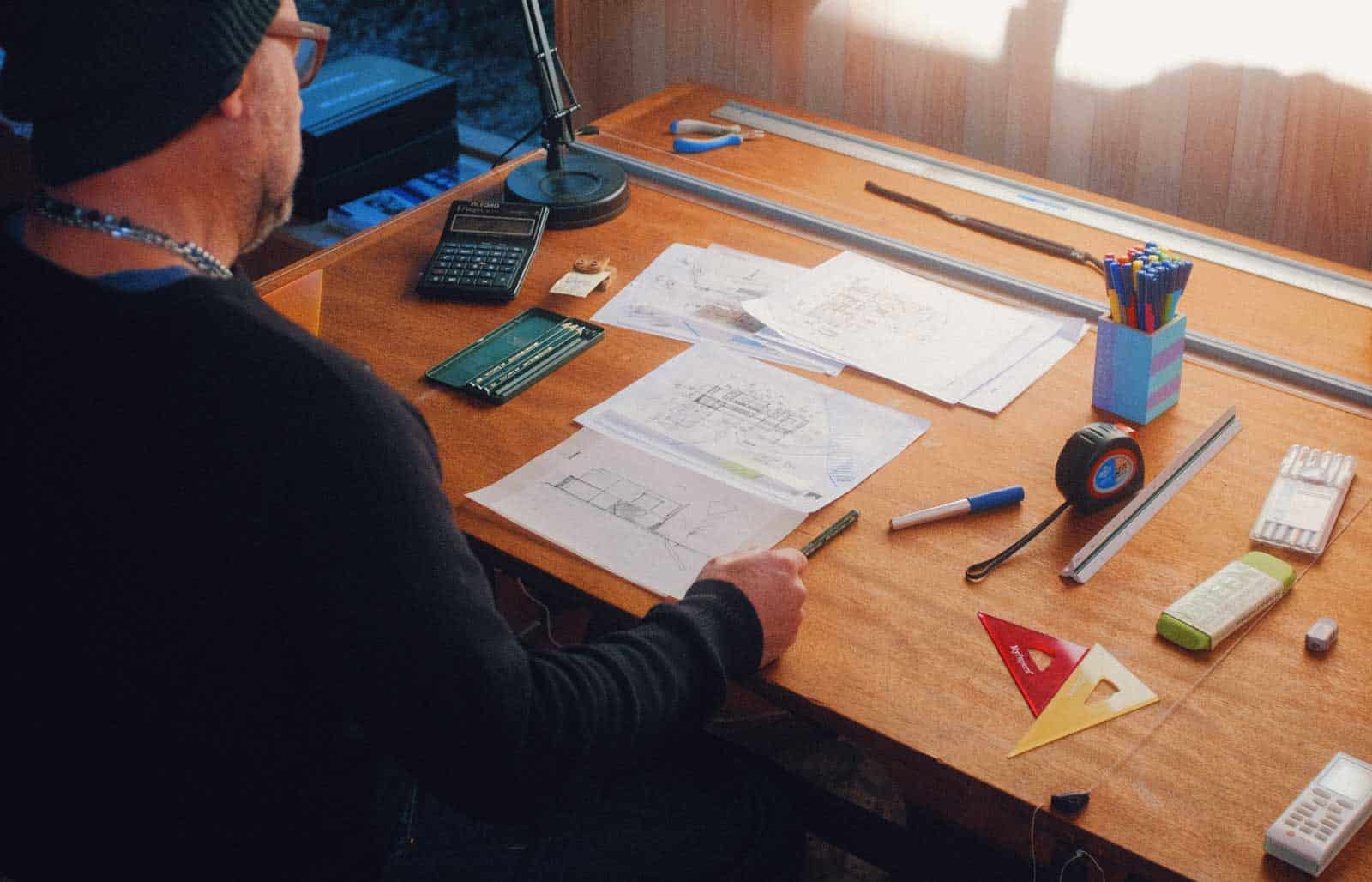Are there tax cuts if you work from home?
There are so many benefits to working from home. But not a lot of people think about the expenses that you incur, whether you’re a remote traditional w-2 employee, a freelancer, or independent contractor.
These are expenses that would otherwise already be taken care of if you worked in a traditional office.
But since you’re working from home you’re the one who’s paying for the electricity, internet service and your work space.
So then that begs the question, can you write off your rent expenses if you’re working from home?
Yes, you can deduct 100% of your business expenses if you meet certain requirements. You can also claim deductions for home expenses for things such as utilities, phone bills, internet service, office supplies, and meals while working from home.
These are thing things I’ve learned as someone who’s been working from home for a long time. My family has used this information to drastically reduce our tax bill after working with our accountant to get all this worked. Even though out although I’m not an accountant or tax expert. You should consult an accountant or tax expert for how the ability to write off home expenses for the business use of your home apply to your situation specifically.
So what’s involved? Keep reading to find out.
Real quick, before we get too far into it here, if you want to get more great ideas for your gaming room or home office and want to connect with other home office hackers to make your space the best join my free private Facebook group, Home Office Hacks here.
Can you write off rent if you work from home?

Working at home is a very rewarding experience, but it isn’t always easy. If you’re working at home, like many of us, you’ll know that rent is a hefty monthly sum to pay.
Even though it is a legal practice, some people don’t realize that rent and home office expenses can be deducted from your taxes when it’s tax time.
When your home becomes your principal place of business there are tax benefits to offset those expenses for using that part of your home in your work, .
If you work from home, most likely, this comes at the expense of having your own home office space. Even if you rent just a desk in a co-working space to have an address/location where clients/customers can meet, this might also cost you a lot of money.
Have you ever wondered if you can deduct your rent as a tax deduction if you work from home?
The answer is yes and it can make a really big difference in you’re responsible for at the end of the tax year.
Don’t worry. It’s easier than it seems.
By the way, if you want to learn more about whether or not employers have to pay for home office expenses, click here.
Do You Qualify to Write Off Your Rent?

You may be eligible to write off your rent if you work from home. But how do you qualify? Here’s how getting that tax break works:
If you have a business space in your home and use it for business purposes, you can deduct the portion of your rent related to that space. You can also deduct some other costs associated with maintaining a business in your home, like utilities and homeowners insurance.
But if the space is used for business and personal activities, only the portion of these expenses that relate exclusively to the business is deductible.
To claim tax write-offs for your home office expenses, it must meet four requirements:
1. It must be used exclusively for business purposes
2. It must be an integral part of running your business
3. It cannot be shared with any other person
4. It cannot be used by anyone else at any time during the year.
How Do You Write Off Your Rent?
If you work from home or want to write off some of your rent, there are several ways to do it. The first thing you need to figure out is whether or not you can deduct the entire amount of your rent as a business expense.
Here’s a step-by-step guide to writing off your rent if you work from home:
In order to calculate your work from home expenses, first, you’ll need to calculate how much rent you pay each year.
Then, figure out what percentage of your home is used for business activities or as an office space. The area where your home office is set up is considered that section that’s dedicated to the business use of your home. You can do this by taking measurements of the rooms in your house and estimating how many hours per day/week/month you spend in each room (keeping in mind that some rooms might be used more than others) to determine the business portion of your home.
Finally, divide that number by 365 days (or however long it takes for a full year) to arrive at an average daily use percentage.
Next, determine whether or not that percentage qualifies as “substantially all.” If it does not qualify as substantially all—meaning it’s less than 30% of the total square footage—then no deduction will be allowed for rent on Schedule E.
However, if it does qualify as substantially all—meaning it’s greater than 50% of the total square footage—then a deduction will be allowed on Schedule E, and no depreciation would be allocated on the taxes.
However, you should note that when you file your taxes, if you’re self-employed and your business is based out of your home, you can deduct a portion of your rent or mortgage payment as a business expense.
To do this, you’ll need to fill out a Schedule C form with your tax return so that the Internal Revenue Service (IRS) knows exactly how much money you made during the year and what expenses contributed to that income.
Moreover, if you own the property where you work, you can deduct all of your mortgage payments—but if someone else owns it, only part of those payments are deductible.
If other people live in the same house (e.g., roommates or family members), they’ll need to sign off on any deduction before claiming it on their returns (or else they might face penalties).
If there’s no mortgage, some landlords will offer “rent reimbursement” as part of their lease agreement with tenants.
How Much Rent Can You Write Off?

You might be able to write off some of the expenses associated with your home, even if you’re working from the kitchen table or doing other kinds of remote work.
Many self-employed individuals and small business owners run their business from home instead of renting an expensive office.
You can deduct certain expenses from your actual expenses that aren’t related directly to the property, such as utilities and maintenance costs if used for business purposes.
For example, those costs are deductible if you have an office in your basement and use electricity or heating oil exclusively for that office. However, if part of that space is used for personal purposes (such as a bedroom), then only those costs associated with business-related activities will be deductible.
Say you’re paying $1,000 per month for your home, which includes utilities and all the costs of keeping up your dwelling. If you deduct this amount from your income as a business expense, it could knock down your taxable income by thousands of dollars—which is excellent news if you’re close to that magic $100,000 mark that triggers higher tax rates.
But there’s a catch: The IRS only allows you to deduct a portion of your rent as an “expense.” And it can vary depending on how much time you spend working from home that year.
The exact rules are complicated, but here’s what we know:
If you work at least 50% of the time in your home office and use it exclusively for business purposes, then 100% of the rent is deductible (as long as certain other conditions are met). If not? Then only part of the rent is deductible.
Also, you can deduct property taxes and mortgage interest from your gross income, but to do so, you’ll need to itemize your deductions on your tax return.
Tips For Writing Off Your Rent
If you work from home, there are two ways to deduct your rent: the standard deduction and the itemized deduction. The standard deduction is the easiest way to write off your rent if you work from home, but if you want to get more money back in your pocket, itemizing may be best for you.
Here are some tips that can help you with writing off your rent if you work from home:
1. Keep Records of Your Expenses and Receipts
You might be eligible to write off your rent if you work from home. However, this isn’t as simple as just listing your rent as a business tax deduction. You have to keep records of your expenses and receipts.
Once you’ve rented a house or apartment, you can’t just add up the rent and write it off—you have to show how many days you used it for business and personal reasons. The IRS has specific rules about what qualifies as a business expense, so follow these guidelines.
The easiest way to keep track of this is by keeping an appointment book or calendar with a section for each day of the week. You can also use software specifically designed for this purpose if you prefer not to write things down manually.
Make sure that all of your records are neatly organized so that they’ll be easy for an auditor or tax professional to sort through later on down the road if necessary (and believe us—they will be).
2. Use the Simplified Home Office Deductions to Assist You in Record Keeping
The IRS has two methods for calculating the business use of a home: The Simplified Method and actual expenses. With either method, you need to keep good records to support your claim.
The Simplified Method requires less record keeping than the actual expense method, but it allows you only $5 per square foot of your home’s floor space. If your floor space is more than 500 square feet, your deduction will be limited to $1,500.
It means that if you have an office area in your basement with a total area of 700 square feet (50 percent of 1,400 square feet) and there is no other area in your house used as an office, then only $1,500 would be deductible and not $2,000 (700 x 2 = 1,400 + 100 = 1,500).
3. Switch Between The Direct and Simplified Home office Tax Deduction Method
You can switch between the Simple and Direct Methods to find one that best suits you. For example, the IRS allows for business expense deductions under the “Simplified Method” or the “Direct Method.” Here’s how to determine which method is best for you:
1. If you have no employees and work at home for less than 500 hours per year, then you can use the Simplified Method. You can deduct $5 per square foot of regularly and exclusively used space for business purposes (such as an office). If this deduction amounts to more than $1,500 per year, it’s not eligible.
2. If you have one employee who works less than 500 hours per year at home, then you can use the Simplified Method.
3. If your business has two or more employees who work at home less than 500 hours per year, then you need to use the Direct Method. You will need to determine the dedicated space for each employee and then deduct that amount from your total square footage used regularly and exclusively for business purposes (such as an office).
Ways to Write Off Your Rent as a Remote Worker
1. Rent a Designated Workspace
If you’re a freelancer, contractor, or entrepreneur who works from home, you may be able to write off your rent as a business expense.
If you work out of an exclusive space designated for work (like a home office or studio), you can treat that space like any other expense for tax purposes. So, for example, if your rent is $1,000 per month and your total business expenses are $10,000 per year, you can deduct the $1,000 from your tax bill.
2. Pay for Short-Term Lodgings
If you work from home, it’s important to know that you can write off your short-term lodgings if they’re used for business. As long as the lodging is not your primary residence and is used exclusively for business, you can write off the cost of it. You’ll need to show a receipt or other proof of payment for the lodging and track how much time you spend in each location during the year.
3. Choose a Home Office Deduction
If you work from home and have a dedicated space in your house, you can write off the portion of your rent that covers that space. You can also claim the cost of utilities and maintenance for that space. For example, if you pay $1,000 per month in rent and use one-third of your home as an office, you can claim $333 ($1,000 divided by three) as an office expense deduction.
Common Home Office Expenses
1. Office Furniture
If you use your home for business, you can deduct the cost of furniture used in your office. That includes desks, chairs, work tables, and shelves. In addition, the cost of permanent partitions used in your home office to separate your business activities from other activities is also deductible.
2. Repairs or Maintenance Costs
Repairs and maintenance costs incurred because of damage caused by a storm or other casualty are deductible if ordinary and necessary expenses are required to keep the property in its present condition, not just cosmetic repairs.
3. Indirect Deductions
You may also be able to deduct indirect expenses related to your home office, such as utilities (including electricity, water, and natural gas), insurance premiums (including homeowner’s insurance), and mortgage interest on your primary residence.
Suppose it is a self-employed workspace used regularly and exclusively for business purposes. In that case, a deduction may be available for depreciation of the portion of the house used as an office (but not depreciation on fixtures).
Conclusion
If you’re a freelancer who works from home, it’s possible to write off a portion of your rent expenses as a business expense if you work from home. However, this means you’ll have to run your freelance business (at home) to meet the IRS’ requirements for being “an ordinary and necessary business expense.” Then, you just have to be sure you follow IRS rules about deducting expenses for your home office.
If you need help as it applies to your specific situation, I strongly recommend you get with a tax professional like a certified public accountant (CPA) to go over your questions.
Next Steps
Want to connect with other remote workers, contractors, freelancers, gamers and people who work from home who are creating the most amazing home offices? Want to get more tips, tricks and hacks on how to make your home office setup the best it can be?
Join my brand new free private Facebook group, Home Office Hacks to connect with other home office hackers to make your space the best!
